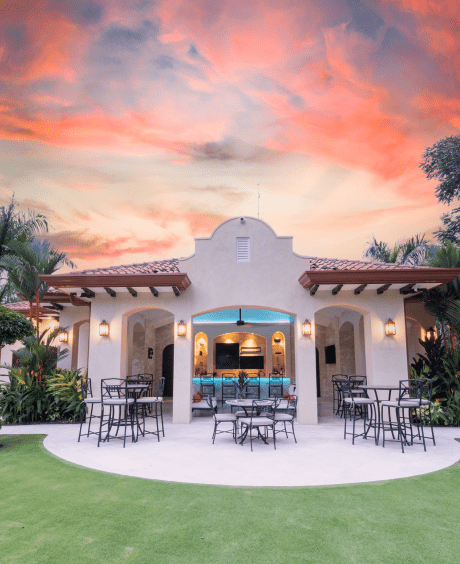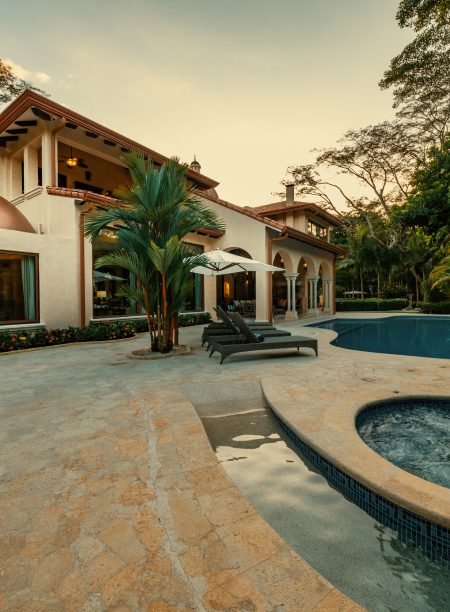The words “expat” and “immigrant” are often used interchangeably, as if they mean the same thing. However, in Costa Rica, these labels carry different meanings, privileges, and social perceptions.
Understanding the difference isn’t just about semantics—it influences how people integrate, how they’re treated, and how they see themselves. Costa Rica is home to both groups, and while their reasons for moving may differ, both play a role in shaping the country’s economy, culture, and society.
So, what really separates an expat from an immigrant? And is the line between the two as clear as it seems?
What Defines an Expat vs. an Immigrant?
At their core, both expats and immigrants have one thing in common: they move to a new country. But their motivations, level of integration, and long-term goals set them apart.
Expat – A Temporary Resident with a Home Elsewhere
An expat (short for expatriate) is someone who chooses to live in a foreign country, often for lifestyle, work, or retirement reasons. They may stay for years but usually maintain strong ties to their home country—legally, financially, and culturally.
- Many expats work remotely or retire in Costa Rica, enjoying the lower cost of living, natural beauty, and relaxed pace of life.
- They often don’t pursue permanent residency or citizenship, even if they stay long-term.
- Many live in expat-heavy communities, where English is widely spoken, and local customs are more optional than essential.
For them, Costa Rica is a second home, not necessarily their final one.
Immigrant – A New Life, Not Just a Stay
An immigrant moves, intending to stay permanently. They don’t just live in a country—they become part of it.
- They often move for economic opportunity, family, or safety, rather than just lifestyle.
- They navigate local laws, obtain legal residency, and integrate into the community.
- Immigrants work toward long-term stability, enrolling their kids in public schools, learning the language, and embracing local customs.
The Key Difference Between Expats and Immigrants
The core distinction between the two? Expats often see their move as temporary, while immigrants make it permanent.
But reality isn’t always so simple. Some expats stay for decades without calling themselves immigrants. Others start as expats and eventually settle down, making the labels blurry at best.
Expats and Immigrants in Costa Rica: Who Are They?
Costa Rica has long been a magnet for both expats and immigrants, but their experiences vary widely.
Expats in Costa Rica – The Good Life Seekers
Expats in Costa Rica are mostly from the U.S., Canada, and Europe, drawn by the warm weather, affordability, and Pura Vida lifestyle. Many are:
- Retirees looking for peaceful, beachside living.
- Remote workers capitalizing on Costa Rica’s digital nomad visa.
- Entrepreneurs setting up businesses in tourism and hospitality.
They typically settle in Guanacaste, the Central Valley, or coastal towns and enjoy a relaxed, privileged lifestyle.
Immigrants in Costa Rica – The Backbone of the Economy
Immigrants in Costa Rica, particularly those from Nicaragua and other Central American countries, come for work and stability. They:
- Fill key labor shortages in agriculture, construction, and domestic services.
- Integrate more deeply into local communities, enrolling children in public schools and adopting Costa Rican customs.
- Often face legal and social challenges, from work permits to cultural bias.
Their contributions are essential to Costa Rica’s economy, but they don’t always receive the same warm welcome that expats do.
Cultural and Social Integration: How Do They Adapt?
The daily lives of expats and immigrants in Costa Rica look very different.
Expats – Living in an International Bubble
Expats often maintain a familiar lifestyle, connecting mostly with other expats. Their communities offer:
- English-speaking social circles
- International schools for their kids
- Events and clubs tailored to foreign residents
They embrace Costa Rica’s natural beauty but don’t always fully integrate into Costa Rican culture.
Immigrants – Weaving into the Local Fabric
Immigrants blend into Costa Rican society more naturally. They:
- Shop at local markets, attend public schools and build relationships with locals
- Face hurdles like language barriers and legal restrictions, making their experience more challenging
- Adopt Costa Rican traditions, becoming part of the country’s social and economic framework
While expats may enjoy Costa Rica, immigrants become Costa Rican.
Blurring the Line – When Expats Become Immigrants
The boundary between expats and immigrants isn’t always clear.
- Long-term expats often transition into immigrants. Many who arrive for a few years end up staying permanently, buying homes, and applying for residency or citizenship.
- Legal status doesn’t always match perception. A wealthy retiree who’s lived in Costa Rica for 20 years but never sought citizenship is still often called an expat. Meanwhile, a Central American worker who’s lived in Costa Rica for years is labeled an immigrant—even if both are technically long-term residents.
- Privilege plays a role. The term “expat” is often reserved for wealthier, Western migrants, while “immigrant” is used for those moving for economic necessity. Race, class, and nationality influence these perceptions more than legal definitions do.
- Many expats contribute economically but don’t fully integrate. Some start businesses, hire locals, and invest in property—but continue living in expat circles. Others embrace Costa Rican life, learning Spanish, forming local friendships, and adapting completely.
At some point, the labels stop making sense. After a decade in Costa Rica, is an American retiree still an expat? Or have they become an immigrant?
The real takeaway: These words aren’t just about legal status. They reflect how society views migration, privilege, and belonging.

Why the Difference Matters?
Expats and immigrants both shape Costa Rica, but their experiences are worlds apart.
Expats often live comfortably in their own communities, enjoying Costa Rica’s benefits without fully integrating. Immigrants, on the other hand, commit to Costa Rica as their new home, facing challenges but becoming a core part of its culture and economy.
Labels like “expat” and “immigrant” can be misleading, but what really matters is how people contribute, integrate, and connect with the country they now call home.
Regardless of what you call them, one thing is certain—Costa Rica wouldn’t be the same without them.











